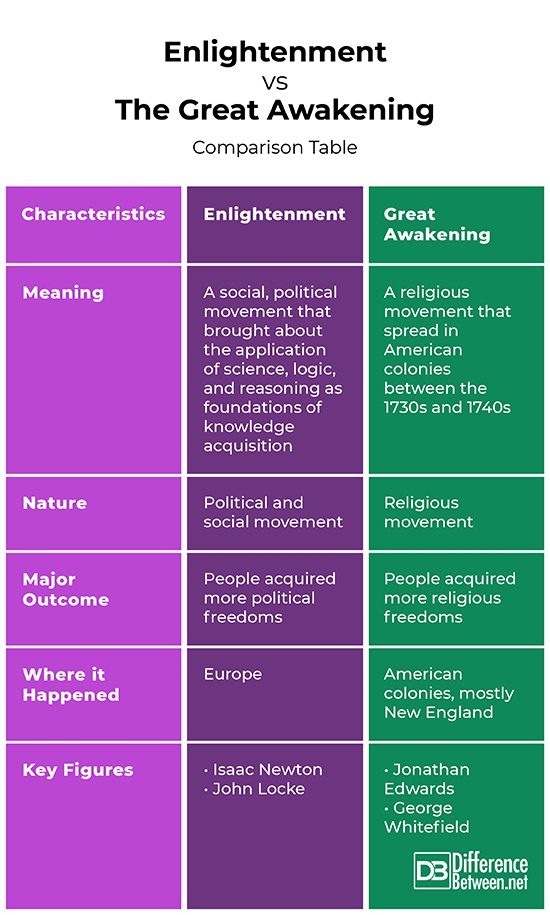The Renaissance and the Enlightenment were two significant cultural movements that dominated history. The former took place between the fourteenth and seventeenth centuries, and it ushered a renewed interest in classical art, literature, philosophy, and science. On the other hand, the Enlightenment took place in the eighteenth century, and it focused on reason, liberty, and the scientific method. The Renaissance was characterized by rediscovery while the Enlightenment explicitly questioned traditional beliefs. Both movements sought to promote knowledge and learning, and their influences are still visible and inform our understanding of the world today.
The Renaissance vs. the Enlightenment: A Comparison of Two Significant Cultural Movements
Introduction
The Renaissance and the Enlightenment are two significant cultural movements that have significantly influenced history. The Renaissance was a period in European history that occurred between the fourteenth and seventeenth centuries. It was characterized by a renewed interest in classical art, literature, philosophy, and science. The Enlightenment, on the other hand, was a philosophical movement that began in the eighteenth century, and was characterized by an emphasis on reason, liberty, and the scientific method.
Social and Cultural Context
The Renaissance was characterized by a rediscovery of classical works of literature and art, as well as a renewed interest in scientific and mathematical ideas. This was fostered by the growth of cities and the development of trade, which led to increased wealth and a new class of educated individuals who were interested in learning.
The Enlightenment, on the other hand, was characterized by an emphasis on reason and science, as well as an emphasis on individualism and liberty. This was fostered by the growth of scientific knowledge and the spread of new ideas through the printing press.
Art and Literature
The Renaissance was characterized by a renewed interest in classical art and literature, which led to the development of new forms of art and literature. Artists such as Michelangelo and Leonardo da Vinci produced works that were highly realistic and sought to capture the essence of the human form. Literature also flourished during the Renaissance, with writers such as William Shakespeare producing works that are still highly regarded today.
The Enlightenment, on the other hand, was characterized by an emphasis on reason and science, which often led to works of literature that were highly rational and focused on the individual. Writers such as Voltaire and Rousseau produced works that sought to promote liberty and individualism, while also criticizing traditional institutions such as the church.
Religion and Philosophy
During the Renaissance, there was a renewed interest in classical philosophy, which led to a questioning of traditional religious beliefs. This was reflected in the works of figures like Galileo Galilei, who challenged the traditional understanding of the universe.
The Enlightenment, on the other hand, was characterized by an emphasis on reason and science, which led to a skepticism of traditional religious beliefs. This was reflected in the works of philosophers like Immanuel Kant, who sought to reconcile reason and faith.
Science and Technology
The Renaissance was characterized by a renewed interest in science and technology. This was reflected in the works of figures like Galileo Galilei, who made significant contributions to the field of astronomy.
The Enlightenment, on the other hand, was characterized by an emphasis on science and technology. This was reflected in the works of figures like Isaac Newton, who made significant contributions to the field of physics.
Conclusion
The Renaissance and the Enlightenment are two significant cultural movements that have had a profound impact on history. While they differed in their social and cultural contexts, as well as their approaches to art, literature, religion, philosophy, and science, they both sought to promote knowledge and learning. Today, their legacies continue to inspire and inform our understanding of the world around us.
